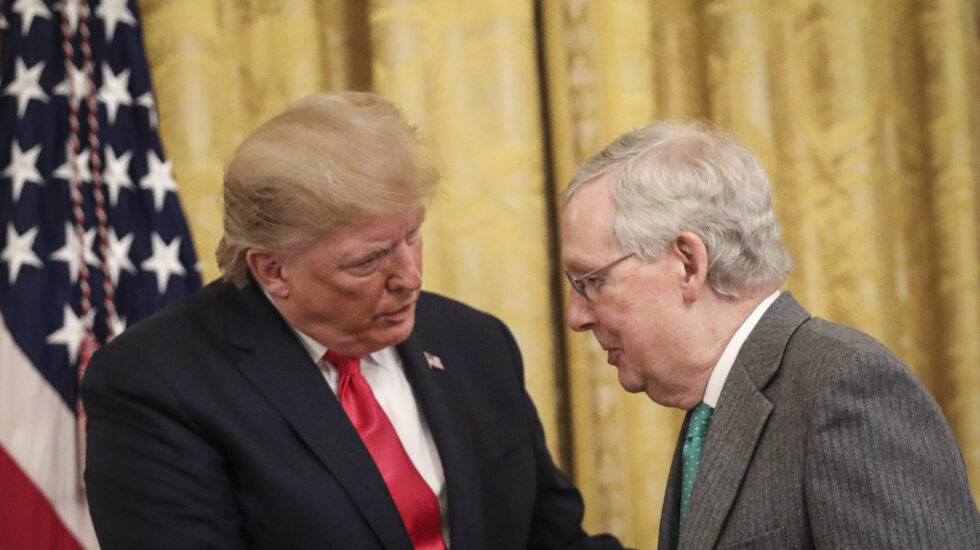The Republican Party seems all-in on Donald Trump – just ask Rep. Liz Cheney, who was ousted from GOP leadership after calling out “The Big Lie.”
But beneath the surface, fissures exist in the relationship between the former president and the party that has seemingly acquiesced to his whims. Many Republicans are working to prevent a cult of personality from overwhelming their identity ever again.
NBC News reports that “Republicans who are in the business of winning elections are trying to prevent future Trumps — at least those who have the same kind of baggage he did in 2015-2016 — from capturing statewide GOP contests.”
NBC News points to recent maneuvers in Virginia and Missouri that prevented two MAGA-styled candidates from winning elections.
In the Show Me State, the GOP introduced a runoff in their primary for the first time. That helped fell the senatorial bid of the bombastic Eric Greitens, whose career had previously imploded due to a sex scandal and campaign finance impropriety.
In Virginia, gubernatorial candidate Amanda Chase described herself as “Trump in heels.” But the state Republican party scrapped their primary altogether and adopted a convention instead. Chase lost.
Perhaps the Republicans at the state level who derailed the Greitens and Chase campaigns recognized an inconvenient truth in GOP circles – Trump is less popular than he used to be. From a recent NBC News poll:
Even Trump’s pull within his own party appears to have lessened, with 44 percent of Republicans saying they’re more supporters of Trump than the GOP, versus 50 percent who say they’re more supporters of the GOP than the former president.
It’s worth mentioning that when Trump arrived to Washington DC in January 2017, his party controlled the House and the Senate. Four years later, he was voted out of office and Democrats won majorities in both houses.
But don’t expect Republicans to cut ties with Trump. In a recent analysis NBC’s Benjy Sarlin compared the Trump-GOP relationship to a hostage situation. He cited remarks from Sen. Lindsey Graham (R-SC):
“I would just say to my Republican colleagues: ‘Can we move forward without President Trump?’ The answer is no,” Graham said on Hannity on Thursday. “I’ve always liked Liz Cheney, but she’s made a determination that the Republican Party can’t grow with President Trump. I’ve determined we can’t grow without him.”
Some Republicans have conducted the same political calculus as Graham and have determined they’d rather leave the party then see it become so Trump dependent.
One hundred prominent Republicans – including former governors, cabinet secretaries, and members of congress – have plans to form a new political party.
